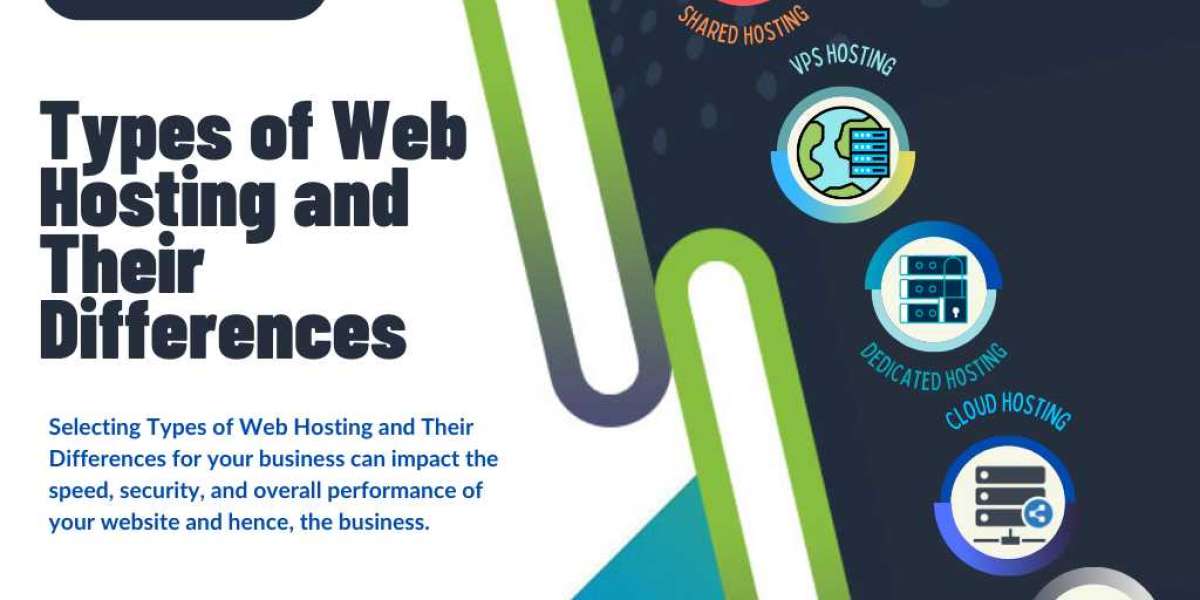There’s a lot of confusion when it comes to what web hosting options are available in the market
In the world of web hosting, there are many options that will all get your site on the web. However, each of them cater directly to website owners needs - whether those needs be big or small.
While they all act as a storage place for your website, where they differ is the amount of storage capacity, control, technical knowledge requirement, server speed and reliability. These are the five types of web hosting you will most often come across:
1. Shared hosting
Shared hosting is perfect for entry-level website hosting. This is where your website will be stored on the same server as multiple other websites. With a shared hosting plan, all domains share the same server resources, such as RAM (Random Access Memory) and CPU (Central Processing Unit). However, because all resources are shared, the cost of shared hosting plans are relatively low, making them an excellent option for website owners in their beginning stages.
In most cases, beginners will find sharing the simplest method of hosting their website; so regardless of whether you’re a small business owner, a community group, or a stay-at-home mom with a desire to blog, your site will be accessible on the web. Shared hosting plans often come with many helpful tools such as: website builders, WordPress hosting, and the ability to email clients.
Although shared hosting provides website owners with a more simplistic approach to the web, the trade-off is that you’re sharing the server with multiple other website owners. This means that surges in usage can ultimately affect your website’s user experience.
Shared hosting plans are ideal for website owners that do not receive a large amount of web traffic.
2. Virtual private server (VPS) hosting
A VPS hosting plan is the ultimate middle ground between a shared server and a dedicated server. It’s ideal for website owners that need more control, but don’t necessarily need a dedicated server.
VPS hosting is unique because each website is hosted within its own space on the server, though it still shares a physical server with other users. While VPS hosting provides website owners with more customization and storage space, they’re still not able to handle incredibly high traffic levels or spikes in usage meaning that the site performance can still be affected by other sites on the server
Typically, VPS hosting is used by website owners who want dedicated hosting but don’t have the technical knowledge needed. VPS hosting offers the cost benefits of shared hosting with the control of dedicated hosting. A great choice for advanced users and those that want specific software and package installations.
3. Dedicated server hosting
Dedicated hosting gives website owners the most control over the server that their website is stored on. That’s because the server is exclusively rented by you and your website is the only one stored on it. This means that you have full root and admin access, so you can control everything from security to the operating system that you run.
However, all that control comes with a price.
Dedicated servers cost are one of the most expensive web hosting options. Typically, they are used by website owners with high levels of website traffic, and those who are in need of complete control of their servers. In addition, a high level of technical expertise is required for the installation and ongoing management of the server.
4. Cloud hosting
Cloud hosting is the current buzzword of the technology industry. In regards to web hosting, it means many computers working together, running applications using combined computing resources. It’s a hosting solution that works via a network and enables companies to consume the computing resource like a utility.
This allows users to employ as many resources as they need without having to build and maintain their own computing infrastructure. The resources that are being used are spread across several servers, reducing the chance of any downtime due to a server malfunction.
Cloud-based hosting is scalable, meaning your site can grow over time, using as many resources as it requires and while the website owner only pays for what they need.
5. Managed hosting
Most hosting packages you will find online are likely to be managed. Hosting companies provide technical services such as hardware and software setup and configuration, maintenance, hardware replacement, technical support, patching, updating and monitoring. With managed hosting, the provider looks after the day-to-day management of the hardware, operating systems and standardised applications.
Although there are many different options to choose from when it comes to web hosting, it all comes down to choosing a plan that fits your needs. Each plan caters to the specifications of different groups and realizing what your needs in a website are will help you ensure that you’re choosing the right plan for you and your business.
Conclusion
Choose from a wide range of web hosting services in our marketplace that fits your business requirements and budget. Selecting and knowing the Types of Web Hosting and Their Differences for your business can impact the speed, security, and overall performance of your website and hence, the business. Therefore, it is crucial for you to pay for the right web hosting provider, especially when you are just starting out. Here are some of the different types of web hosting service providers available today.



